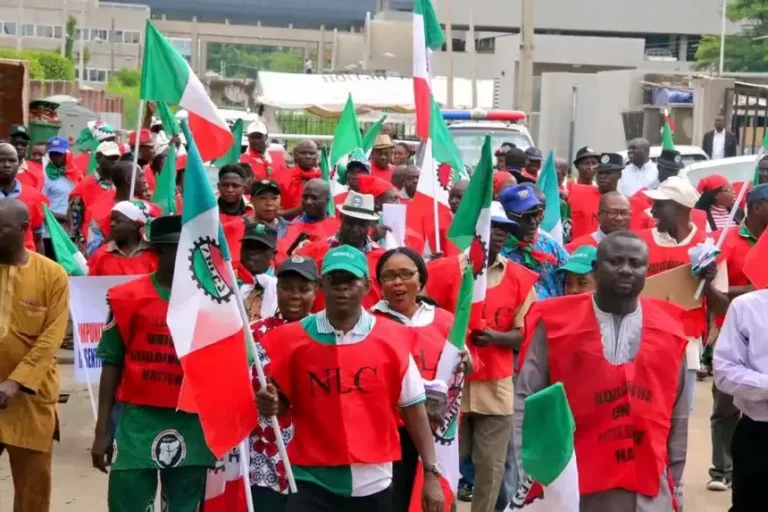
Nigerian University Closures Spark Nationwide Protest
In a nationwide display of frustration and anger, Nigerian workers took to the streets to protest the prolonged closure of public universities across the country.
For more than five months, these institutions have remained shut due to unresolved concerns about inadequate care and underfunding.
Led by the Nigeria Labour Congress (NLC), workers from all sectors of the economy gathered to demand action and put pressure on the government to address the crisis.
The NLC called for a two-day protest, which saw thousands of demonstrators gather at the Ikeja “underbridge” in Lagos and other locations throughout the country.
The closures have had a devastating impact on the country, causing increased insecurity and unemployment. The NLC, which represents the affected unions, warned that if the problem remained unresolved after the demonstration, it would mobilize employees nationally to go on a warning strike, further harming the country’s fragile economy.
The Academic Staff of Nigerian Universities (ASUU), Senior Staff Association of Nigerian Universities (SSANU), Non-Academic Staff Union of Educational and Allied Institutions (NASU), and the National Association of Academic Technologists (NAAT) have gone on strike to protest what they call inadequate university funding and poor welfare conditions.
ASUU, which began its statewide strike on February 14, has been extending it for more than five months.
The union had opposed the government’s deployment of the Integrated Payroll and Personnel Information System (IPPIS) as a payment platform for workers and requested its replacement with the University Transparency and Accountability Solution (UTAS).
The Joint Action Committee (JAC) of both SSANU and NASU has likewise rejected IPPIS, despite presenting to the government an alternative purported to have also been devised by its members.
Last week, President Muhammadu Buhari directed that the Minister of Labour and Employment, Chris Ngige, stand aside from negotiations with the striking employees, allowing his Education Ministry colleague, Adamu Adamu, to take over.
During the joint presentation of the negotiation progress report to President Muhammadu Buhari, Mr Adamu addressed the reason for his aloofness since the workers’ strike began and promised to expedite the settlement process.
The ongoing closures of Nigerian universities have caused significant disruption and frustration for students, workers, and the wider community. The protests aim to put pressure on the government to take action and resolve the situation as quickly as possible.